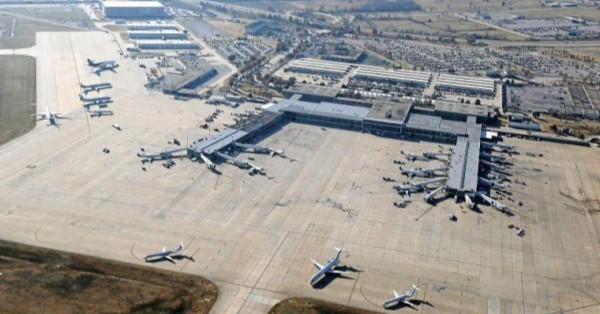Citymesh Introduces 5G-Enabled Drone System for Emergency Response
On September 5, 2024, Citymesh unveiled its cutting-edge Safety Drone Shield at the Provincial Institute for Training and Education (PIVO) in Asse, Belgium. This innovative system integrates drone technology with 5G connectivity to assist emergency services. The official demonstration marked a significant leap toward smarter, faster response strategies for emergency situations, showcasing how drones can enhance situational awareness and operational efficiency.
Addressing Emergency Response Challenges with Real-Time Drone Data
Emergency services such as firefighters, police, and security teams constantly face high-pressure situations requiring rapid response. Delays in assessing a scene can lead to misinformed decisions, wasting precious time and resources. Traditional surveillance methods also struggle with challenges like limited coverage and delayed data delivery. The need for real-time, accurate imaging is critical to the success of many operations, but conventional solutions often fall short.
How Citymesh’s Safety Drone Shield Solves Emergency Response Delays
Citymesh’s Safety Drone Shield addresses these challenges by deploying drones equipped with thermal and HD cameras within 90 seconds of a call. Operating on a Private 5G Network, these drones can cover a 5-kilometer radius and transmit live footage to emergency teams. With 16 operational Drones-in-a-Box, managed by three Remote Operations Centers (ROCs), the system ensures seamless coordination and robust coverage across Belgium. This allows emergency services to quickly assess situations and respond more effectively.
Demonstration Highlights the Efficiency of Citymesh’s Safety Drone Shield
During the demonstration at PIVO, the system showcased its real-time imaging capabilities, with drones providing critical visual data to support firefighter and police training. These exercises were recorded, helping teams evaluate their responses and improve future interventions. The project is set to expand to 70 Drones-in-a-Box by 2024, covering 200 km² of Belgian territory, and enhancing situational awareness for emergency services. The drones, equipped with thermal cameras, are particularly useful in tracking individuals in low-visibility situations, such as fire or smoke.
Leveraging 5G for Instant Drone Deployment and Data Transmission
The Safety Drone Shield operates on 5G technology, which is essential for transmitting large volumes of high-quality video and thermal data in real-time. Citymesh partnered with Nokia to ensure the entire system complies with stringent European data security and privacy regulations. The drones themselves are controlled remotely via 5G Private Networks, leveraging low latency and high-speed connectivity to ensure seamless operations across multiple locations.
Enhancing Decision-Making and Resource Allocation with Drone Technology
The immediate benefit is faster and more accurate decision-making for emergency services. The system significantly reduces the time required to assess a scene, allowing for more effective allocation of resources. Additionally, the automated deployment of drones means faster response times for firefighters, contributing to safer and more efficient emergency interventions. The 5G-powered system enables the transmission of high-definition video and thermal imaging, helping teams detect threats and locate people more effectively.
Impact of Citymesh’s Drone Shield on Belgium’s Emergency Services
Citymesh’s Safety Drone Shield is poised to have a transformative impact on how emergency services operate. By integrating drone technology into existing infrastructure, Belgium’s emergency teams can perform faster, more efficient operations. This system not only improves situational awareness but also opens doors for future innovations in Edge Computing and Automation. In the long term, the drone network could be expanded to other industries, including healthcare, utilities, and Smart Cities.
Citymesh’s Role in Pioneering 5G-Integrated Emergency Solutions
Citymesh has taken the lead in integrating 5G with drone technology to create an ecosystem that supports emergency services across Belgium. The company is investing over €6 million in the project, with €4 million in subsidies requested to support the infrastructure. Citymesh is actively working with local fire and police departments to refine the system, ensuring it meets the specific needs of different emergency zones.
Collaborative Efforts Between Citymesh, Cegeka, and Nokia to Enhance Safety
In collaboration with Cegeka, Citymesh developed the SENSE app, which allows police to manually summon drones during interventions. The process for firefighters is fully automated, allowing them to summon a drone without needing to take any extra action. Nokia provides the 5G infrastructure, ensuring that all drones operate seamlessly and securely. Additionally, SkeyDrone’s UTM system enhances the coordination between drones and other airspace users, ensuring safety during operations.
Current and Future Expansion Plans for Citymesh’s Drone Shield Network
Currently, 16 drones are operational, with plans to expand to 70 drones by the end of 2024. These drones are managed by three Remote Operations Centers, which are operational from 8:00 AM to 8:00 PM, with the goal of moving to 24/7 service. Each ROC is equipped with redundant systems to ensure continuous operation, even in case of power or connection failures.
The project kicked off in early 2024, with plans to scale up to 70 operational drones by the end of the year. By 2025, Citymesh aims to extend the drone network’s operational hours to 24/7 and expand the system to additional emergency service zones. Furthermore, future plans include introducing VTOL (Vertical Take-Off and Landing) and fixed-wing drones to extend the system’s capabilities.
Support from Belgian Government and Emergency Services for Drone Technology
The Belgian government has provided significant support through subsidies, signaling its belief in the potential of drone technology to revolutionize emergency services. Local police and fire departments are already working closely with Citymesh to refine the system, and positive feedback from these stakeholders highlights the value of real-time drone deployment in critical situations.
Citymesh’s Safety Drone Shield represents a major leap forward for Belgium’s emergency services, combining drone technology and 5G connectivity to create faster, smarter, and more efficient response strategies. As this project continues to evolve, it will shape the future of public safety and beyond.






























